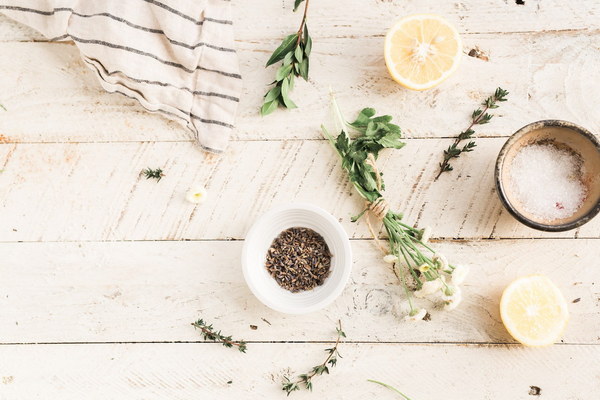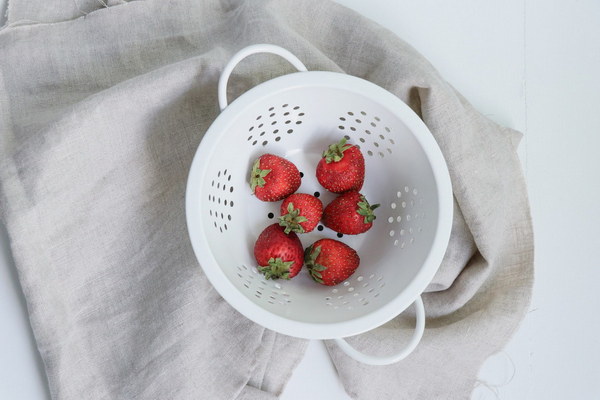Nature's Secret Discover the Best Herbs for Cooling Heat, Drying Dampness, and Promoting Diuresis
Introduction:
In traditional Chinese medicine, the concept of balancing the body's Yin and Yang is fundamental to maintaining health. One of the most common imbalances is the presence of heat and dampness, which can lead to a variety of ailments. This article explores the natural remedies that can help cool heat, dry dampness, and promote diuresis, providing relief and harmony to the body.
1. Cooling Heat:
Heat is a common element in the body that can manifest as a range of symptoms, such as fever, irritability, and redness. To cool heat, we can turn to several natural remedies:
a. Peppermint (Mentha haplocalyx): Known for its cooling properties, peppermint is a great herb for soothing the body and reducing heat. It can be consumed as tea or used in essential oil form.
b. Scutellaria baicalensis (Chinese Skullcap): This herb is highly regarded for its ability to clear heat and promote relaxation. It is often used in conjunction with other herbs to address heat-related issues.
c. Platycodon grandiflorus (Balloon Flower): This herb is believed to have cooling properties that can help reduce fever and inflammation. It is often used in combination with other cooling herbs for a synergistic effect.
2. Drying Dampness:
Dampness is another common imbalance that can cause discomfort and illness. The following herbs can help dry dampness:
a. Alisma orientale (Zhi Shi): Alisma is known for its diuretic properties and can help remove excess fluid from the body. It is often used to treat conditions such as edema and water retention.
b. Atractylodes macrocephala (Cang Zhu): Atractylodes is a well-known herb for drying dampness and promoting digestion. It is often used in conjunction with other herbs to address dampness-related issues.
c. Poria cocos (Fu Ling): Poria is a versatile herb that can be used to clear dampness, promote diuresis, and support the immune system. It is often used in combination with other herbs for a comprehensive approach to dampness.
3. Promoting Diuresis:
Diuretics can help the body eliminate excess fluid and reduce swelling. Here are some natural diuretics:
a. Cornus officinalis (Shu Di): Cornus is a traditional Chinese herb that has diuretic properties and is believed to help lower blood pressure. It is often used in conjunction with other herbs for a synergistic effect.
b. Equisetum hyemale (Huo Ma Li): Also known as horsetail, this herb is rich in silicon and has been used for centuries to promote diuresis and support urinary health.
c. Phyllanthus urinaria (Bian Qu Nao): This herb is known for its diuretic properties and can help eliminate toxins from the body. It is often used in conjunction with other herbs for a comprehensive approach to diuresis.

Conclusion:
Nature offers a wide range of herbs that can help cool heat, dry dampness, and promote diuresis. Incorporating these natural remedies into your daily routine may provide relief and restore balance to your body. However, it is important to consult with a healthcare professional before starting any new treatment, especially if you have existing health conditions or are taking other medications. By understanding the properties of these herbs and using them appropriately, you can harness the power of nature to support your health and well-being.









